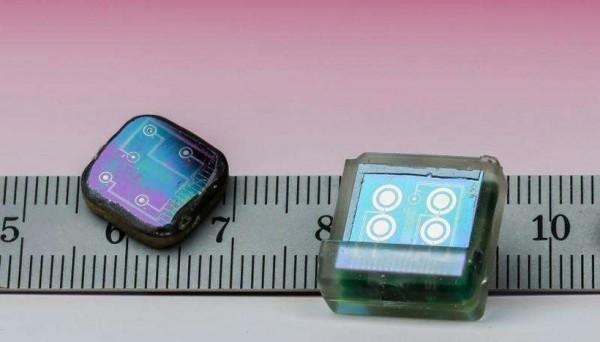Implantable biosensor chip can monitor glucose and drugs in real-time
A team from the EPFL integrated Systems Laboratory have unveiled a new implantable sensor that is about a centimeter long that is designed to be implanted under a person's skin and gets power from a patch on the surface of the skin. The sensor is able to communicate with a mobile phone and is designed to measure the concentration of certain molecules in the body at the same time.
Some of the molecules that the sensor can monitor simultaneously are glucose, cholesterol, and certain drug concentrations. The idea is that the sensor will be able to provide users and medical professionals constant analysis of blood work and other things rather than relying on blood drawn that represents a single snapshot of how well a patient is doing.

The team says that this is the first chip that is capable of measuring not just pH and temperature, but metabolism related molecules such as glucose, lactate, and cholesterol as well as drugs. There are three main components inside the one-centimeter square device.
Those three components include a circuit with six sensors, a control unit that analyzes incoming signals, and a radio transmission module allowing Bluetooth connectivity with a smartphone. An induction coil inside the chip draws power from an external battery that is attached to the skin via a patch. The chip has been tested successfully on mice giving researchers the ability to constantly monitor glucose and paracetamol levels. The team says that clinical trials on humans could take place in three to five years.
SOURCE: Phys.org
